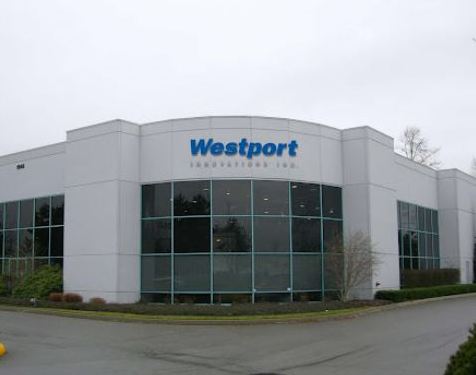
In this installment of our “Head to Head” series we compare two Canadian tech companies who are “greening” the way we drive. Westport Innovations (TSX:WPT) and Zenn Motor (TSXV:ZNN).
About “Head to Head: In “Head to Head” we use basic value metrics to compare a large Canadian tech stock to a small one in a similar space. Clearly, there are caveats and qualifiers necessary (growth, for instance is much more important to smaller stocks) in such a comparison. Nonetheless, we think it’s a useful exercise to try and level the playing field to see if David can take down Goliath. In this, the second installment in the series, Toronto based Zenn Motor plays the role of David, while Westport Innovations, with a market cap that has nearly quadrupled in the past year, from under $200 million to approximately three quarters of a billion, can now safely play Goliath.
First, a little bit more about our pugilists: Founded in 1996, Vancouver based Westport Innovations is a developer of environmental technologies such as high-pressure direct injection combustion technology. This technology allows diesel engines to operate on cleaner burning gaseous fuels, such as natural gas, without sacrificing performance or fuel economy. Westport grew out of a research project by Professor Philip Hill at the University of British Columbia’s Mechanical Engineering Department. Hill was developing a concept called high pressure direct injection (HPDI) of natural gas.
In 1994, through UBC’s University-Industry Liaison Office, Hill met current Westport CEO David Demers. In 1995, with HPDI technology as its principal strategic asset, Westport Innovations Inc. was formed. Today the company does more than $120 million in revenue (FY 2009) and has created valuable strategic alliances with some of the world’s largest engine and vehicle manufacturer, such as Volvo, Cummins, and Kenworth.
Based in Toronto, Zenn Motor was founded in 2001. The Company originally designed electric cars that are powered by a battery system the company calls revolutionary, the EESU (Electrical Energy Storage Unit). EEStor, a company based in Cedar Park, Texas, claims their battery contains a new type of capacitor for electricity storage whereby a five-minute charge can power a vehicle for 400 kilometres. Zenn has invested $7.5-million for a 10.5-per-cent stake in EEStor.
Zenn’s NEV, or “Neighbourhood Electric Vehicle” hit the markets late in 2006. These vehicles were called LSV’s or “low-speed vehicles”, because they could only reach a speed of 40 km/h. The NEV never went into mass production and, in 2009, The Company decided to shift directions. Zenn now focuses on its ZENNergyTM drive solutions in hopes it would “become a key supplier and partner with industry-leading Original Equipment Manufacturers (OEM) and Tier 1 companies in the new, used, and specialty vehicle markets.” as Zenn CEO Ian Clifford stated in a Dec 7, 2009 press release.
Let’s get started by seeing how these two from opposite ends of the weight class
fare in the most basic of tests, price to sales:
1. Price to sales:
Westport: 7.46 x sales
Zenn 63.5 x sales
For The Dollarton Cantech Letter, which prides itself on finding Canadian techs trading below one times sales, these are some pretty lofty numbers, indeed. Perhaps investors can begin to see the justification for Westport’s multiple when they consider that this is nearly twice the company it was in 2008 (Revenue grew from $71.5 million in FY 2008 to $121.8 million in FY2009), The promise of Zenn’s potentially revolutionary technology, however, will have a lot of value to fill by the time it reaches full commercialization.
2. Cash and Short term investments to market cap:
Westport: 15.1%
Zenn: 9.85%
Both Zenn and Westport boast respectable treasure chests. Westport has nearly doubled its cash position in FY 2009 (from $57.66 million to $107.18 million by the end of FY 2009). Zenn raised over $9 million at $3.50 per share in July 2009, much of this earmarked for a final milestone payment to EEStor. Zenn’s cash position has been at a similar healthy level for several years.
3. Long term debt to market cap:
Westport: 1.77%
Zenn: NIL
Like most of the stocks in the Dollarton Cantech Letter’s profiled company index, Zenn has zero long term debt. Westport’s long term debt is negligible compared to its market cap, and is dwarfed by The Company’s cash position.
4. Trailing three year growth rate:
Westport: 42.5%
Zenn: -3.4%*
Westport’s growth rate is very impressive, besting the mark of the majority of stocks in The Dollarton Cantech Letter’s profiled company index. When you look at the big picture, Zenn’s numbers haven’t changed much. Because The Company did not produce any revenue in 2006 we took the average of the past three years. Zenn’s 2009 revenue fell from $3.04 million in 2008 to $1.4 million in 2009, but 2008 was a significant gain from 2007, when The Company did $2.02 million in revenue.
5. Enterprise Value to Sales:
Westport: 6.47 times sales
Zenn: 57.26 times sales
Enterprise value is the really the metric that answers the question “How much love does the market have for your company?”. Considering some of the stocks in our Profiled Companies index actually have negative enterprise value, Westport multiple, which is north of six times its sales (an enterprise value of $615 million, compared with sales of 95.3 million), is nothing to scoff at. But Zenn’s multiple (It’s Enterprise value is $85.89 million, while its sales are $1.5) makes it the Sally Field of Canadian tech stocks. You “really, really like it”.
Underlying Data:
Calculations are based on each company’s most recently available financial information as supplied by Sedar, and based on the closing price of each stock on April 20th, 2010.
Comment
Leave a Reply
You must be logged in to post a comment.






 Share
Share Tweet
Tweet Share
Share




Uhm…Didn’t Dick Weir and Carl Nelson start EEStor? ZENN was started by Ian Clifford?
I have a feeling Zenn will prosper in the near future. Ian Clifford wouldn’t invest 7.5 Million to get a 10% stake in EEstor for nothing.